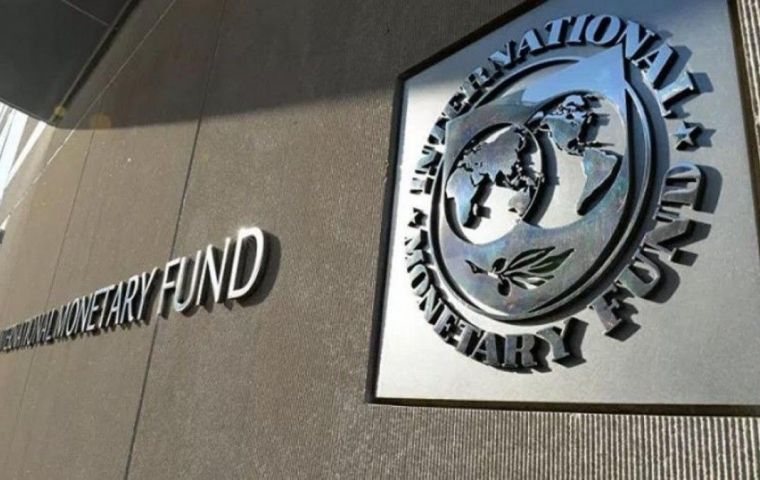MercoPress. South Atlantic News Agency
IMF: Argentina's economic activity projections worse than thought
 Argentina's return to international capital markets could happen as early as 2025, the IMF also foresaw
Argentina's return to international capital markets could happen as early as 2025, the IMF also foresaw Monday's International Monetary Fund (IMF) projected a 3.5% drop in Argentina's economic activity this year from a previous 2.75% assessment but admitted inflation would be lower than previously thought reaching 140% year-on-year by the end of 2024 in addition to “declining further in the medium term, as demand for pesos recovers from historically low levels.”
“Output will contract by around 3.5% in 2024, although a turnaround in activity is expected in the second half of this year as fiscal consolidation headwinds ease, real wages begin to recover and investment picks up in response to reforms,” the IMF's staff report also pointed out.
“Activity and demand have contracted sharply, although there are early signs that some sectors may be close to bottoming out,” the document also warned.
“Several indicators point to a possible stabilization of economic activity starting in April, including improvements in consumer confidence, a pickup in private credit and cement consumption, all in the context of a rebound in agricultural production following last year's drought,” the IMF also found.
“Meanwhile, reserves are expected to remain unchanged, as less favorable terms of trade are largely offset by higher net capital inflows,” the credit agency highlighted.
In addition, Argentina's return to international capital markets could happen late in 2025 or even earlier given the “sustained medium-term fiscal and external surpluses supported by tight policies, productivity gains, and structural improvements,” it was also explained after the IMF agreed to a US$ 800 million disbursement considering that Argentina's economic program under President Javier Milei continued “on track.”
If the South American country stays on this path, the exchange rate policy is expected to become more flexible shortly. In this regard, the IMF found that the 2% monthly devaluation “has helped anchor inflation.” Hence, monetary and exchange rate policies “will evolve to support disinflation and safeguard reserve accumulation.”




Top Comments
Disclaimer & comment rulesCommenting for this story is now closed.
If you have a Facebook account, become a fan and comment on our Facebook Page!